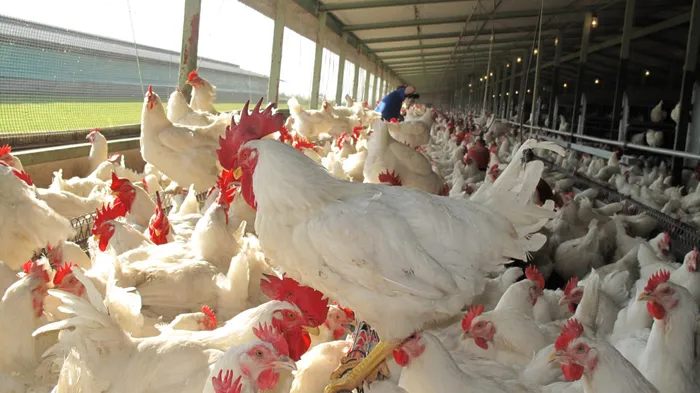South Africa partially lifts poultry import ban from Brazil, producers rejoice
AGRICULTURE

Poultry products producers and agriculture associations have welcomed the news by the Department of Agriculture to partially lift the ban on imports of poultry and poultry products from Brazil from Thursday.
Image: supplied
Poultry product producers and agriculture associations have welcomed the news by the Department of Agriculture that it has partially lifted the ban on imports of poultry and poultry products from Brazil from Thursday.
The ban was imposed due to an outbreak of Avian flu in Brazil. The Department of Agriculture has since said that the ban has been contained to one state in Brazil.
Minister of Agriculture John Steenhuisen announced that South Africa will partially lift the suspension on imports of all poultry and poultry products from Brazil, effective on Thursday.
“This decision follows the receipt of a second report from Brazil’s Ministry of Agriculture and Livestock, confirming that the outbreak has been contained to a single state,” Steenhuisen said. “However, this partial lifting remains conditional and may be revoked if the outbreak is found to have spread to other states within Brazil.”
Georg Southey, the manager at Merlog Foods, said this decision was a welcome and necessary move.
“The partial lifting of the import ban will be applied to all other states of Brazil, aside from the Rio Grande do Sul region, where the outbreak of Highly Pathogenic Avian Influenza (HPAI), commonly known as bird flu, was detected mid-May," Southey said, "The decision to partially lift this ban could not have come at a more critical time. South Africa has been losing over 100 million meals per week due to the ban, putting pressure on food affordability and security, especially as Stats SA reports that up to 30% of households in some provinces face regular hunger.”
Brazil supplies 95% of South Africa's mechanically deboned meat (MDM), a key ingredient in everyday staples like polony, viennas, and sausages.
Southey explained that these affordable proteins are essential to school feeding schemes and low-income families, and no other country could fill the gap.
He said, "I commend the Department and the Minister of Agriculture for responding swiftly to industry concerns and for engaging constructively with Brazilian authorities to implement a regionalisation protocol. By allowing imports from unaffected areas of Brazil to resume, this decision strikes a vital balance between biosecurity and national food needs.”
Arnold Prinsloo, the CEO of Eskort, too welcomed the "speedy response from the government", but said South Africa was by no means out of the woods yet.
“Although the Department of Agriculture has agreed to a partial lifting of the suspension, the process is as follows: Brazil has to send a certificate to the government, and together they need to agree on legalities and wording," he said.
Prinsloo explained that once that certificate is in place, South Africa can only then place orders to Brazil. Production has stopped in Brazil, so there will be a two-week lead time on production. Then orders will take six weeks to get to South Africa, and then one to two weeks to clear customs.
“Thus there will still be an impact on consumers and business and food security at large. We do have stock in place, but many of the smaller suppliers are in trouble and will remain so,” Prinsloo said.
The South African Meat Processors Association (Sampra) also welcomed the announcement, saying it will avert significant shortages of affordable protein such as polony, viennas, and braai wors on South African shelves.
Gordon Nicoll, the chairperson of Sampra, said, "We are grateful for the urgency displayed by the Department of Agriculture in averting the full-scale social and humanitarian crisis which the ban imposed on 16 May threatened to unleash. “While it will take some time for imports of MDM to reach our shores, the situation could have been significantly worse.”
Francois Rossouw, the CEO of Southern African Agri Initiative, said the decision by the Department reflects a much-needed shift towards a science-based and internationally aligned approach to managing animal health risks through regionalisation.
BUSINESS REPORT

Poultry products producers and agriculture associations have welcomed the news by the Department of Agriculture to partially lift the ban on imports of poultry and poultry products from Brazil from Thursday.
Image: supplied